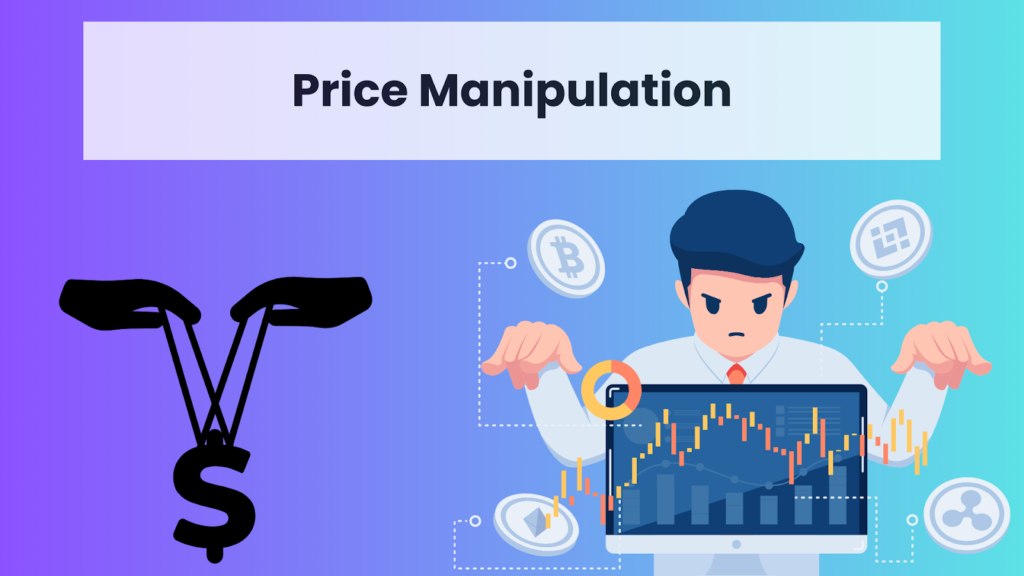Fintech Manipulation: Appreciating the Risks and Reality
Manipulation fintechzoom, Deeper into her studies on financial innovations, Sarah came onto a concept that made her shudder: manipulation in fintech. Curious and little terrified, she couldn’t help but wonder how manipulation could affect such a forward-looking sector that promised openness and effectiveness. Sarah’s path into the field of fintech manipulation exposed a convoluted network of methods and strategies utilized by rogue players to take advantage of the system, therefore casting doubt on the integrity and safety of this fast expanding industry. The several kinds of fintech manipulation will discussed in this blog article together with their effects on customers and investors as well as the steps being done to stop these unethical behavior.
What is manipulation of fintech?
Fintech manipulation is the unethical and sometimes criminal activities carried out by people or organizations to affect financial technology systems in their advantage. This can entail faking transaction data, adjusting stock prices, and utilizing automated trading bots to generate synthetic market movements. Usually, one wants to fool investors, get unfair benefits, or cover illegal activity.
| Type of Manipulation | Description |
|---|---|
| Stock Price Manipulation | Artificially inflating or deflating stock prices |
| Transaction Data Falsification | Creating false transaction records |
| Automated Trading Bots | Using bots to manipulate market movements |
| Insider Trading | Trading based on non-public information |
| Fraudulent ICOs | Creating fake initial coin offerings to scam investors |
Techniques of Fintech Control
Manipulation of Stock Prices
In the fintech space, stock price manipulation sometimes entails disseminating misleading information meant to either raise or deflate a stock’s price. One can accomplish this via social media, internet forums, or perhaps news releases. The offenders purchase cheap stocks, disseminate good news to raise the price, then sell their equities for the higher price, therefore leaving gullible investors with overpriced assets.
- Stat: A 25% of all securities fraud cases can attributed to stock price manipulation, according an SEC research.
| Year | Percentage of Securities Fraud Cases Involving Stock Price Manipulation |
|---|---|
| 2018 | 22% |
| 2019 | 24% |
| 2020 | 25% |
| 2021 | 25% |
Falseness in Transaction Data
False transaction records created to fool investors or regulatory bodies constitute the essence of transaction data fabrication. Blockchain records can changed, bogus accounts created, or transaction histories changed to do this.
- Stat: Chainalysis’s analysis of transaction data falsification in 2021 shows that $7.7 billion worth of cryptocurrencies were pilfers under several channels (Source: Chainalysis).
| Year | Value of Cryptocurrency Stolen (Billion USD) |
|---|---|
| 2019 | 4.5 |
| 2020 | 5.6 |
| 2021 | 7.7 |
Bots in Automated Trading
Based on pre-programmed criteria, automated trading bots carry out high speed deals. Although these bots can be employed legally, they can also controlled to produce synthetic market swings. Bots can designed, for instance, to carry out significant deals in order to give the impression of either supply or demand, therefore motivating other traders to do likewise.
Stat: Automated trading bots account for 10% of all bitcoin trading volume, according a University of California, Berkeley study (Source: UC Berkeley).
| Year | Percentage of Cryptocurrency Trading Volume Attributed to Bots |
|---|---|
| 2018 | 8% |
| 2019 | 9% |
| 2020 | 10% |
| 2021 | 10% |
Fintech Manipulation’s Effect on Investors
For investors, fintech manipulation might have quite negative effects. Those who fall for false schemes or controlled markets risk major financial losses. Furthermore, the confidence in fintech systems can undermined, which would lower sector investment.
Stat: Investors lost more than $1.4 billion in 2020 on fintech-related fraud according to the FBI (Source: FBI).

| Year | Investor Losses to Fintech-Related Fraud (Billion USD) |
|---|---|
| 2018 | 0.9 |
| 2019 | 1.2 |
| 2020 | 1.4 |
About Fintech Enterprises
Furthermore prone to manipulation are fintech firms themselves. Negative publicity and mistrust could cause user count to drop as well as investment. Companies may also suffer legal repercussions should they be involved in or careless about manipulative techniques.
According to a PwC poll, 53% of fintech companies said that the most important risk from manipulation and fraud is loss to reputation.
| Risk Factor | Percentage of Fintech Companies Identifying as Significant |
|---|---|
| Reputational Damage | 53% |
| Financial Loss | 37% |
| Regulatory Scrutiny | 31% |
| Customer Trust Loss | 45% |
Fighting Fintech Manipulation: Legal Actions
Globally, regulatory authorities are enacting policies meant to counteract fintech manipulation. These steps call for more rigorous reporting standards, more observation of trading behavior, and harsh fines for fraudulent activity.
- Stat: Reported fintech fraud cases in the EU dropped 17% in response to tougher EU rules .
| Year | Decrease in Reported Fintech Fraud Cases |
|---|---|
| 2019 | 10% |
| 2020 | 12% |
| 2021 | 17% |
Technological fixes
One can fight manipulation with technology in itself. Artificial intelligence and machine learning techniques can identify odd trade trends and point up possible manipulation. With its open and unchangeable record, blockchain technology can also help stop transaction data being falsified.
According to a Deloitte research, 68% of fintech startups are funding artificial intelligence and machine learning projects to improve fraud detection powers.
| Year | Percentage of Fintech Companies Investing in AI and Machine Learning |
|---|---|
| 2018 | 52% |
| 2019 | 60% |
| 2020 | 68% |
| 2021 | 68% |
Frequencies Regarding Fintech Control
Describes financial manipulation.
Fintech manipulation is the unethical and unlawful methods applied to affect financial technology systems in order of personal benefit. This covers stock price manipulation, falsification of transaction data, and artificial market movement creation with automated trading bots.
How does fintech handle stock price manipulation?
Manipulating stock prices means disseminating misleading information meant to either inflate or deflate them. Low-priced stocks are bought by offenders, who then sell them at a higher price, hence inflating the price and leaving gullible investors with overpriced equities. Positive news is then shared to drive the price.
For investors, what effects follow from fintech manipulation?
Should investors be victims of manipulated markets or dishonest tactics, they risk suffering large financial losses. Fintech platform trust can be undermined, which would lower sector investment.
How might finance startups fight manipulation?
Through stronger reporting standards and more monitoring of trade activity, fintech firms may fight manipulation by means of technology solutions including artificial intelligence and blockchain, as well as by legislative actions.
These are automated trading bots.
Based on pre-programmed parameters, automated trading bots run deals at great speed. Although they can be utilized fairly, they can also be controlled to produce synthetic market movements.
How may artificial intelligence help to fight fintech manipulation?
By identifying odd trade patterns and flagging possible manipulation, artificial intelligence and machine learning algorithms help to improve fraud detection powers on fintech systems.
Conclusion
Both fintech companies and investors run major hazards from fintech manipulation. Understanding the several kinds of manipulation, the effects on the sector, and the actions being done to stop unethical behavior helps stakeholders to better defend themselves and support a more open and reliable fintech environment. By means of laws, technical developments, and raised awareness, the fintech industry can keep expanding and innovating while protecting the interests of every involved party.


